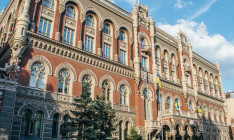Finance
financial resultNeighbor’s luck. Russian banks reduce reserves and declare profits

Based on results of the first six months of 2014 two banks backed by Russian capital earned the highest profits. VTB Bank is the leader, having earned more than UAH 1 bn. The second place in the ranking belongs to Prominvestbank with profits of UAH 874 mn. Both financial institutions have reduced allocations to reserves, despite the increase in troubled debts, which in the Ukrainian banking system amounted to 30% since the beginning of the year. More modest financial results were registered in Alfa-Bank (Ukraine) and Sberbank of Russia (Ukraine), whose allocations to reserves were increased.
Moneymaker
At present the situation in Russian banks is by far the best, as many borrowers are no longer servicing their loans. The amount of non-performing loans in VTB Bank has grown since the beginning of the year by UAH 1.1 bn. The bank’s portfolio is dominated by loans to legal entities – their amount is 9 times higher than the amount of loans issued to individuals. Despite the increase in the corporate loan portfolio in the first quarter by UAH 6 bn, the bank disbanded UAH 1.27 bn reserves for them.
In the second quarter VTB Bank has spent UAH 1.3 bn on allocations to reserves, which increased the coverage of loans to legal entities, but in the end it turned out almost twice lower than at the beginning of the year. Based on results of the first six months of 2014 the level of reserve coverage of loans to legal entities in VTB Bank was 13.9%, while as of January 1 it was 20.9%. Representatives of the bank explain the decline in reserves with “restructuring of portfolios of several corporate clients” and deny the influence of dynamics of reserves on financial results. “The movement of reserves only reflects the changes in the loan portfolio,” said the press service of VTB Bank.
Financiers do not hide the fact that re-structuring is a handy mechanism for covering the actual volume of distressed assets. Signing a new contract with borrowers, who could not settle accounts for their obligation, the bank refers such loan to the category of safe. Which means it can disband the reserve previously created for it.
In Prominvestbank the amount of troubled debt has decreased by UAH 0.2 bn since the beginning of the year. The same is the amount of bank’s disbanded reserves, although the total debt of its customers over six months increased by UAH 9.6 bn. Today, for Prominvestbank it is especially important to carry on profitable operations. It is hard to rely on financial support from the parent Vnesheconombank (VEB) since the new U.S. sanctions restrict access for VEB and its subsidiaries to long-term financing on the U.S. debt market. Prominvestbank denies direct impact of sanctions on its operations. “Restrictions imposed on Russian banks and companies do not affect the liquidity position of Prominvestbank,” says the statement on its website.
Cold calculation
Sberbank of Russia (Ukraine) and Alfa-Bank (Ukraine) demonstrated moderate profits based in the first six months of the year. The Ukrainian daughter company of Sberbank has earned UAH 73.9 mn, which is 3.5 times less than in the same period last year. Alfa-Bank earned a profit of UAH 3.9 mn, reducing it by half compared with January – June 2013. Both banks increased their allocations to reserves.
While in the first quarter Alfa-Bank (Ukraine) spent on reserves UAH 744 mn, in the second quarter the financial institution raised the amount to UAH 1.1 bn. Such a move is logical, believe experts at Alfa Bank. “The rising costs for creation of reserves are linked to the complicated economic and political situation in the country, which had an impact on borrowers’ ability to serve their debts,” says the press release of Alfa-Bank (Ukraine). The growth of problem debt is confirmed by financial statements: the amount of Alfa-Bank’s negatively classified assets in April-June rose from UAH 3.6 bn to UAH 4.8 bn. SberBank of Russia also increased allocations to reserves. According to media reports, the amount of the bank’s troubled debt has increased by UAH 2.6 bn since the beginning of the year.












 of the agreement of syndication with Financial Times Limited are strictly prohibited. Use of materials which refers to France-Presse, Reuters, Interfax-Ukraine, Ukrainian News, UNIAN agencies is strictly prohibited. Materials marked
of the agreement of syndication with Financial Times Limited are strictly prohibited. Use of materials which refers to France-Presse, Reuters, Interfax-Ukraine, Ukrainian News, UNIAN agencies is strictly prohibited. Materials marked  are published as advertisements.
are published as advertisements.